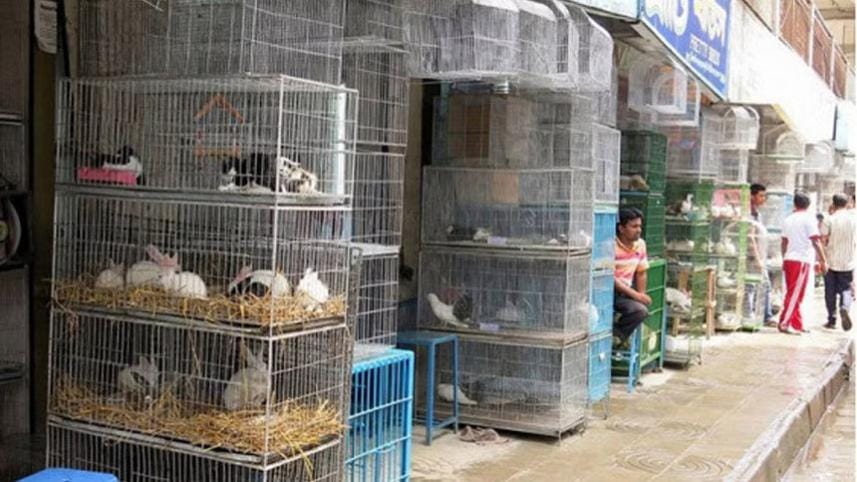Are you looking for a pet or an accessory?

In recent years, keeping pets has become much more common in Bangladesh, particularly amongst the middle- and upper-middle classes. While there is no specific data, according to the National Board of Revenue, Bangladesh imported Tk 285.21 crore worth of live animals and birds in the 2020-21 fiscal year, the highest since FY 2016-17.
Bazlur Rahman Shikder, general secretary of Aqua and Pet Association in Katabon, had noted to The Business Post in 2022 that the annual turnover at the Katabon market alone was over Tk 30 crore. There were more than 2,000 pet shops across the country at the time, and the market was growing by 10-12 percent annually, according to Shikder.
Similarly, when you look at the animal- and pet-related groups on Facebook – which have tens of thousands of members – it becomes evident that the craze of owning a pet has taken over the country.
While all of this might seem exceptionally wholesome, there are some causes for concern.
In Bangladesh, cats and dogs are people's favourites. And when you look at the situation of street or stray animals in Dhaka, it becomes quite clear that animal lovers don't need to look too far to get themselves a pet. Despite this, business is booming for pet shops in Katabon and also for private breeders.
So, why is it that some people are still paying money to get a pet, when our streets are filled with cats and dogs that desperately need a home? And are places like Katabon or the private breeders themselves contributing to animal abuse?
If you have ever been to Katabon or even seen pictures of the shops there, it is quite obvious why these places are ground-zero for animal rights violations.
Scores of cats, dogs, rabbits, and birds are crammed inside cages in these tiny shops taking up the length of the road. Cats and birds are not meant to be kept inside cages. While dogs can have kennels or cages where they sleep, the cages in Katabon don't even give them enough space to stretch their legs. At night, when the shops are closed, these animals remain trapped inside in the darkness. The screams and howls coming from the shuttered shops echo through the streets. On top of that, the country has experienced significant heatwaves in the last few months, with no one seemingly worried about the suffering of the animals in Katabon.
Similarly, breeders have small kennels in which they keep exotic breeds of cats and dogs, forcing them to procreate over and over to sell off the litter for huge profits. You will often hear horror stories about how the animals there contract diseases but are not given any sort of veterinary care. Instead, when some of the babies in a litter are sick, the breeders simply throw them away to protect the remaining litter from illness.
What further aggravates the issue is that these breeders are usually supplying breeds of dogs or cats that are not meant for a climate like ours.
For example, in recent years, the Russian Neva Masquerade breed of cats and Huskies have become particularly popular in Bangladesh. From what I know, people often pay between Tk 50,000 to Tk 1,50,000 for these specific breeds.
Sadly, these animals aren't meant to live in Bangladesh's heat and humidity. This summer, when the heatwaves were quite extreme, I heard countless stories of these dogs or cats, many of which were exotic, suffering heat strokes and dying.
When reflecting on all this information, the only question I am left with is: why?
While an endless number of local stray animals die on the streets from accidents and starvation, why do we need to buy a pet? Are we not culturally well-known for being prudent with how we spend our money?
The sad reality is that more and more people are becoming "clout chasers," looking to spice up their Instagram feed with an exotic animal, rather than give a home to a local one that desperately needs it.
Those who have their own bideshi cat or dog may even refuse to acknowledge this. But this is the reality. By buying an animal from Katabon or from a breeder, one is financially supporting corrupt organisations that treat animals like products, not pets that deserve our love.
Aaqib Hasib is a sub-editor at The Daily Star.




 For all latest news, follow The Daily Star's Google News channel.
For all latest news, follow The Daily Star's Google News channel.
Comments